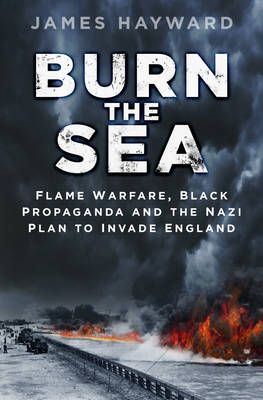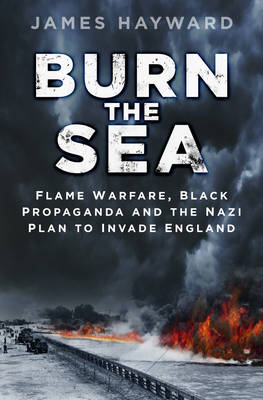
Bedankt voor het vertrouwen het afgelopen jaar! Om jou te bedanken bieden we GRATIS verzending (in België) aan op alles gedurende de hele maand januari.
- Afhalen na 1 uur in een winkel met voorraad
- In januari gratis thuislevering in België
- Ruim aanbod met 7 miljoen producten
Bedankt voor het vertrouwen het afgelopen jaar! Om jou te bedanken bieden we GRATIS verzending (in België) aan op alles gedurende de hele maand januari.
- Afhalen na 1 uur in een winkel met voorraad
- In januari gratis thuislevering in België
- Ruim aanbod met 7 miljoen producten
Zoeken
Burn the Sea
Flame Warfare, Black Propaganda and the Nazi Plan to Invade England
James Hayward
Hardcover | Engels
€ 25,45
+ 50 punten
Omschrijving
In the whole course of the war, ' conceded Britain's chief press censor, 'there was no story which gave me so much trouble as that of the attempted German invasion, flaming oil on the water and 30,000 burned Germans.' Sparked by the Directorate of Military Intelligence and MI6, rumours that Britain had set fire to the English Channel to defeat a German invasion in 1940 quickly spread around the world. Highly popular in America, the incendiary 'Big Lie' became Britain's first significant propaganda victory of the Second World War.Yet the unlikely deception was founded in fact. Dead German soldiers were washed ashore on British beaches, a secret Petroleum Warfare Department tested lethal flame barrages on land and sea, and fire ships were hastily dispatched to enemy ports as part of Operation Lucid. British intelligence agencies even managed to plant the burning sea story on their opposite numbers in Nazi Germany.Burn the Sea is the definitive account of the origin, circulation and astonishing longevity of the myth of the 'invasion that failed' in 1940, as well as its remarkable revival in 1992.
Specificaties
Betrokkenen
- Auteur(s):
- Uitgeverij:
Inhoud
- Aantal bladzijden:
- 192
- Taal:
- Engels
Eigenschappen
- Productcode (EAN):
- 9780750965989
- Verschijningsdatum:
- 3/02/2016
- Uitvoering:
- Hardcover
- Formaat:
- Genaaid
- Afmetingen:
- 157 mm x 236 mm
- Gewicht:
- 480 g

Alleen bij Standaard Boekhandel
+ 50 punten op je klantenkaart van Standaard Boekhandel
Beoordelingen
We publiceren alleen reviews die voldoen aan de voorwaarden voor reviews. Bekijk onze voorwaarden voor reviews.









